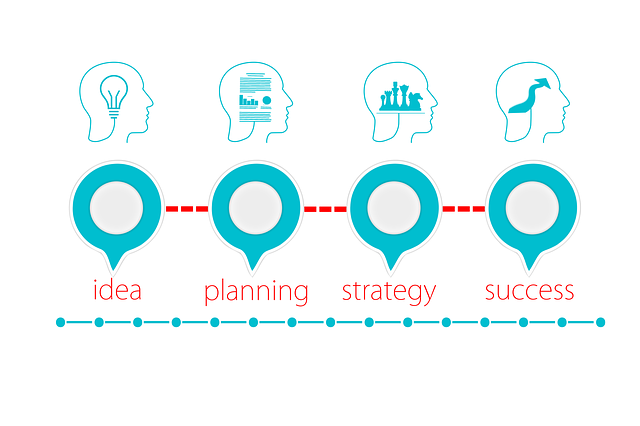Well-organized charity events through Event Planning for Local Businesses significantly benefit communities and businesses alike. They enhance community engagement, increase brand visibility, drive networking opportunities, foster corporate social responsibility, and encourage customer loyalty. Successful planning involves strategic goal setting, collaboration with volunteers and sponsors, digital tool utilization, pre/post-event communication, and strong partnerships. Measuring success beyond attendance – through donations, volunteer rates, feedback, and return participation – is key to refining events and ensuring a meaningful impact on both the community and chosen charity.
Charity events, expertly organized, can be a game-changer for local communities. This article delves into the strategies behind successful event planning, focusing on how local businesses can maximize their impact. From understanding the power of well-structured initiatives to building partnerships with community groups and securing sponsors, each step is crucial. We explore effective measuring techniques to evaluate the reach and impact, ensuring your charity events resonate and inspire lasting change. Discover the art of event planning for local businesses and unlock a world of giving back.
- Understanding the Impact of Well-Organized Charity Events
- Strategies for Successful Event Planning for Local Businesses
- Building Partnerships: Collaborating with Community Groups and Sponsors
- Measuring Success: Evaluating the Impact and Reach of Your Charity Event
Understanding the Impact of Well-Organized Charity Events

Well-organized charity events can have a profound impact on both the local community and businesses involved. For local businesses, event planning plays a pivotal role in fostering community engagement and brand visibility. When executed seamlessly, these events attract attendees, create opportunities for networking, and showcase corporate social responsibility. This, in turn, boosts business reputation and encourages customer loyalty.
Moreover, charity events offer a unique platform to unite diverse stakeholders—from volunteers to sponsors—around a common cause. Such gatherings can inspire emotional connections, stimulate meaningful conversations, and amplify the collective impact of the initiative. By understanding these benefits, local businesses can harness the power of event planning for sustainable community development and positive social change.
Strategies for Successful Event Planning for Local Businesses

Successful event planning for local businesses involves a strategic approach that combines community engagement, innovative ideas, and meticulous organization. First, identify the goals and target audience to tailor an event that resonates with attendees. Collaborate with stakeholders, including volunteers and sponsors, to pool resources and expertise. This collaborative effort not only reduces planning burden but also amplifies promotional opportunities through diverse networks.
Leverage digital tools for efficient event management. Online platforms facilitate registration, ticket sales, and communication, streamlining processes and enhancing participant experience. Additionally, integrate social media campaigns to create buzz and attract a wider audience. Remember, effective event planning goes beyond the big day; pre-event promotion and post-event follow-up are crucial for fostering community connections and measuring success in Event Planning for Local Businesses.
Building Partnerships: Collaborating with Community Groups and Sponsors

Building strong partnerships is a cornerstone of successful event planning, especially for charity events that aim to make a significant impact in local communities. By collaborating with community groups, organizers can tap into existing networks, leverage their knowledge of the area, and gain access to dedicated volunteers who are passionate about the cause. These partnerships amplify the reach and effectiveness of the event, ensuring it resonates with the target audience.
Sponsors play another vital role in event planning for local businesses. They provide financial support, essential resources, and valuable marketing opportunities. Engaging with sponsors early on allows organizers to structure mutually beneficial partnerships. Through strategic collaboration, charity events can offer sponsors visibility, positive brand association, and a chance to contribute to a worthy cause while reaching a targeted audience within their community.
Measuring Success: Evaluating the Impact and Reach of Your Charity Event

Measuring the success of a charity event is an essential step in understanding its impact and planning future events effectively. For local businesses involved in event planning, evaluating their efforts goes beyond just attendance numbers. It involves assessing the reach and engagement of the community, as well as the funds raised for the chosen cause.
By collecting and analyzing data, organizers can gain valuable insights. This includes tracking donations, volunteer participation rates, and post-event feedback from attendees. Such metrics help in gauging the event’s overall effectiveness and identifying areas for improvement. For instance, a successful charity walk might not only measure steps taken but also the number of participants who returned the following year, indicating long-term engagement and a meaningful impact on both the community and the chosen charity.
Well-organized charity events have the potential to create significant impact, fostering community engagement and driving positive change. By implementing strategic planning, partnering with local groups and sponsors, and meticulously measuring success, businesses can make a substantial difference while enhancing their brand reputation. Event Planning for Local Businesses becomes a powerful tool when focused on creating meaningful experiences that resonate with attendees and benefit charitable causes.



